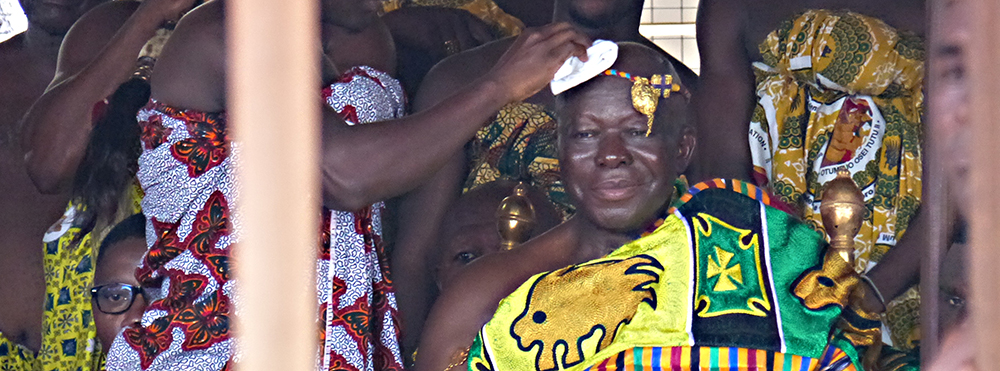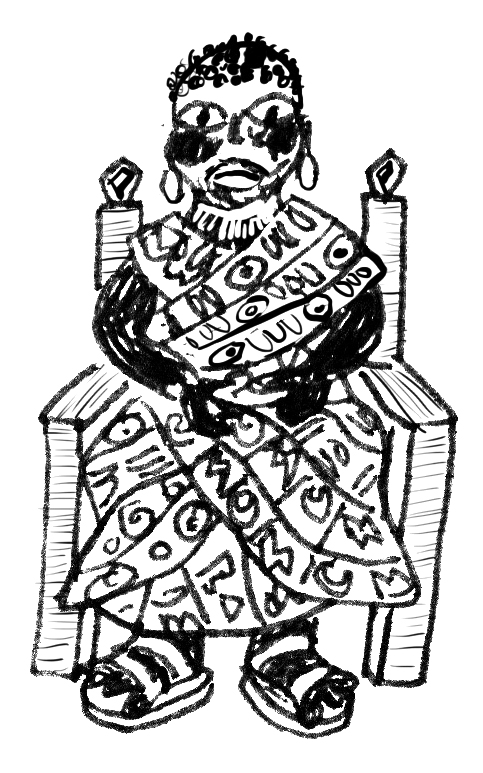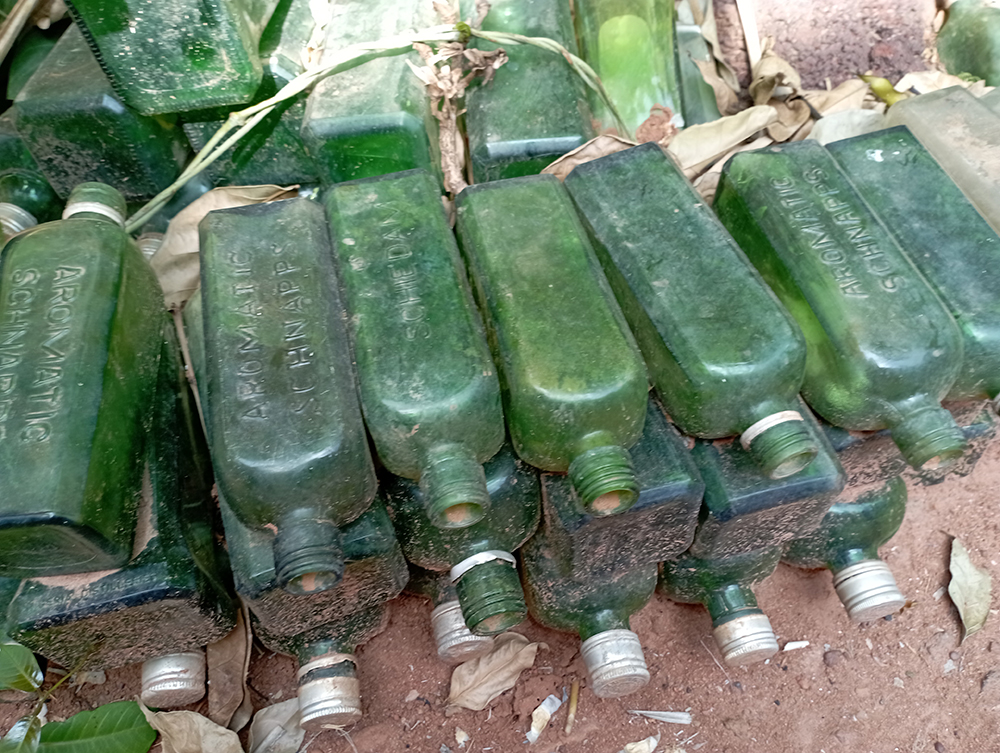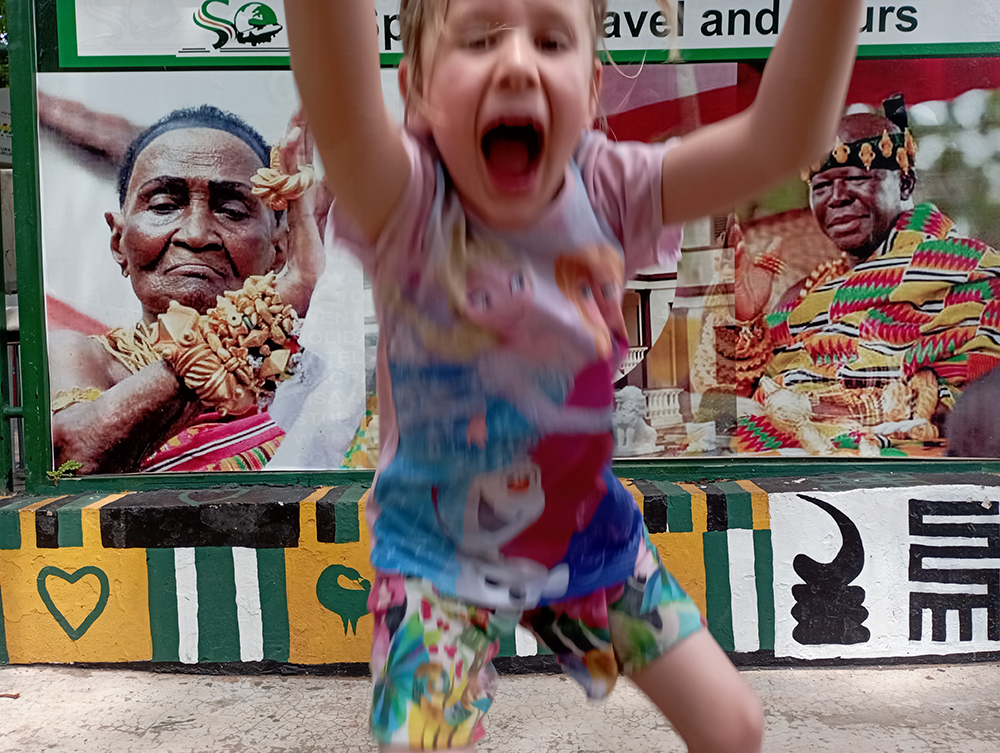
This Ashanti Caretaker to the local Queen takes her role very seriously.
We had to arrange this meeting through a third party carefully, and had to present a bottle of Snapps, behave respectfully and say goodbye with an envelope of money!
We spent three weeks in Ghana during the 2024 Easter holidays, battling the sweltering heat of Kumasi to meet some local Queen Mothers and attend the famous Royal Akwasidae Festival.

Ashante vehemently worship their King and Queen (called Queen Mother) and hold regular lavish ceremonies to celebrate them. But apart from the main royal family, there are hundreds of local Chiefs and Queen Mothers in the Ashanti region – one for every town and village. Like the main Queen, the lesser Queens also have exceptional powers – to chose the next Chief, and to also dismiss him if dissatisfied.





Facts
- Location: Region Ashanti, Ghana.
- Thanks to the transatlantic slave trade, the descendants of the Asante tribe also live on many Caribbean islands, especially in Jamaica.
- Population: Around 10 million.
- Religion: Christianity, Islam, traditional Akan religion.
- Language: Twi, English.

Matriarchal features:
- Children belong to the mother’s family (matrilineal name)
- Land and property is inherited within the mother’s family (matrilinear heritage)
- Each city, village or the region is traditionally ruled by a Chief and a Queen mother (chief’s real mother, aunt or sister). The Queen selects (and in extreme cases dismisses) the Chief, advises him and can even substitute him.


